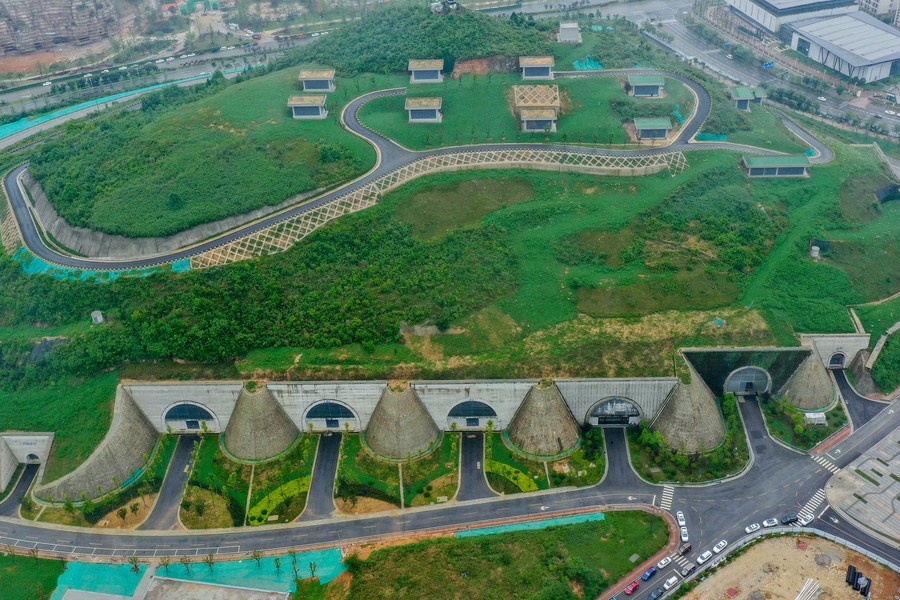
Aerial photo taken on May 24, 2021 shows a data center of Tencent in Gui'an New Area of southwest China's Guizhou Province. (Xinhua/Ou Dongqu)
BEIJING, Feb. 28 (Xinhua)-- China's leading tech companies have been making efforts to reduce their carbon footprint, aligning with the government's pledge to peak the country's carbon dioxide emissions before 2030 and achieve carbon neutrality before 2060.
Research predicts that by 2040 information and communications technology will account for 14 percent of global emissions, up from 1.5 percent in 2018.
Tech giants are in the vanguard of China's net-zero shift.
Last Thursday, Tencent announced its plan to achieve carbon neutrality in its operations and supply chain by no later than 2030, committing to using green power for 100 percent of all electricity consumed by 2030.
Tencent's plan includes the reduction of carbon emissions from power consumption in data centers and buildings, as well as the reduction of indirect carbon emissions from the supply chain, such as infrastructure materials, purchased servers, and energy use in company-leased data centers, according to Xu Hao, the company's vice president of sustainable social value.
Meanwhile, more tech companies are trying to drive change toward a low-carbon society by fostering open innovation and knowledge sharing and leveraging the reach and influence of their platforms and products.
Lenovo, the world's largest PC manufacturer, has developed a liquid cooling technology for data centers. It can reduce energy consumption by up to 40 percent while maintaining performance.
At Lenovo's manufacturing base in Hefei, Anhui Province, where one out of every eight PCs sold globally is made, the company deploys a system to improve production efficiency and reduce idle time, saving more than 2,696 MWh of electricity annually. The annual saving of electricity translates to an emission reduction of 2,000 tonnes of carbon dioxide, an impact comparable to planting 110,000 trees per year.
Carbon capture, utilization, and storage (CCUS), or carbon capture and storage (CCS), is a set of technologies used to strip carbon dioxide from industrial waste gases or directly from the atmosphere.
Tencent is rolling out a pilot CCUS project in China with Iceland's Carbfix, which provides a natural and permanent storage solution by turning carbon dioxide into the stone underground in less than two years. The project will also be the first in Asia.
At the Mobile World Conference Shanghai 2021, Huawei released its zero-carbon network, which is designed to help telecom operators reduce their energy costs, increase green power generation, and realize carbon neutrality in their daily service.
Pony Ma, chairman of Tencent, has said that promoting carbon neutrality shows high-tech companies take up social responsibilities. Its meaning goes beyond the reduction of the company's carbon footprint. It is about encouraging sci-tech companies to step up innovation to push forward the net-zero shift in China. ■